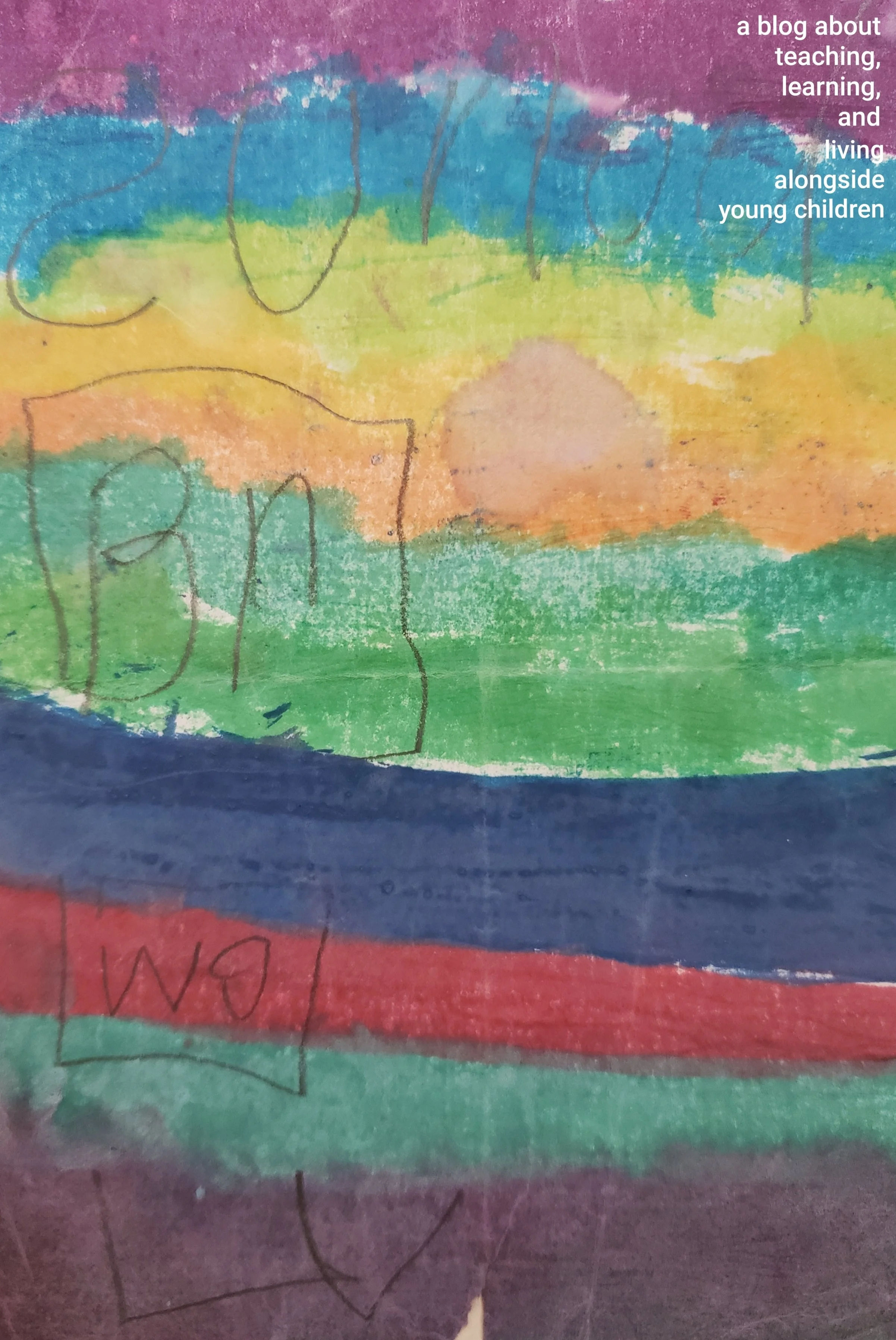Practice, Not Magic: Cleaning Up (Part One)
/illustrated by alyssa, age 7
Practice, Not Magic is a series of posts about the practical aspects of living alongside young children. Focusing on one vignette, we can parse out the developmental from the situational and how to think through common dilemmas faced by parents, teachers, cool aunts, and chosen family, et al. The principles below can be adapted for either home or the classroom, but are a guide for thinking, not a prescription.
One of my mom’s first negative, and often repeated, memories of me was the first time I told her no and meant it. At the time, I was an only child and had little incentive to flex on my parents. However, I was three years old, and being three years old is all about cause and effect, the thrill of newly found power, and trying to find out if actions speak differently than words. So, when my mom asked me to clean up my tea party, I did what any three-year-old developing an autonomous identity would do: I said no. I said no repeatedly. I might have stomped a foot. Legend has it that I also said, “You can’t make me,” and this was the moment my mom became enraged enough to grab my hands and physically make me pick up the cups and saucers one by one - even the little teapot, short and stout though it was. My mom is still not over it, and I understand why. We can save ourselves from some of that residual indignation, however, if we think developmentally.
Children’s resistance to cleaning up can be about a few things, depending, of course, on age and circumstances (consider that caveat as applicable to every post in this blog and every moment of life). Here, we will consider one possible problem and a reflective solution. More to come in later posts.
Potential cause of behavior: The job is genuinely overwhelming
Too many things have been offered to the child in the first place, causing them to focus on the excitement of pulling more novel things out instead of learning to think creatively with a more limited selection of items.
To our adult minds, this can sometimes feel like “an excuse” based on our cultural assumption that you have to be responsible for what you do. The adult impulse here might be, “If you didn't want to clean them, you shouldn’t have taken them out.” This makes a certain kind of sense, but realistically, the child is never solely responsible for the things around them. They came from somewhere: you, grandparents, a birthday party, happy meals, etc.
Possible Solution: Offer to help, but deconstruct what the actual problem is alongside your child. Later, when time and energy are available, reorganize this space according to which things are actually liked or useful. Consider rotating toys and materials instead of having everything available all the time. The number of items can increase depending on the age and ability of the child to navigate them independently. Start small.
Sort through the materials together either when the iron is hot, so to speak, or when you, again, have time to focus. Make the plan very clear and concise. State how many things you will keep for now, and hold that line as you sort through the things, keeping calm and consistent. Feelings might arise because the child’s object permanence is still developing. Reassure that the things will still be with us for when we agree it’s time to switch. Then, keep this ideal in mind as new objects enter your home to classroom.
What this solution might sound like:
Micah: It’s time to clean up and get ready for dinner.
Three-year-old: No.
Micah: You do not want to clean up, but this space is not ready. We will clean it up.
Three-year-old: No. (Or maybe immediate tears because we’ve been down this road before)
Micah: You are really frustrated. We will clean up and then get a drink of water. You can take a deep breath if you need to right now. This is a lot of things, and It feels like a really big job. Let’s do it together. I will pick up the Hatchimals. Do you want to start with the cars or the markers?
(the next day, at a time that is calmer and with plenty of time)
Micah: I was just thinking about yesterday when you were really upset about cleaning up. What was happening?
Three-year-old: I don’t want to clean up,
Micah: Sometimes, when we have soooo many things we are using all at once, it can be really tricky to remember the cleaning up part. I wonder which things you really would like to have ready for now and which ones we should save for a different time? Then we don’t have to clean up alllll the materials every time. Let’s choose ten things to keep ready.


